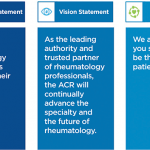Patients who reviewed an industry-sponsored booklet about a commonly used rheumatoid arthritis drug were twice as likely to choose the proposed therapy as were patients who reviewed similar decision-aid material presented in a neutral manner, according to a recent study. Richard Martin, MD, MA, professor of medicine, rheumatology, at Michigan State University College of Human…









